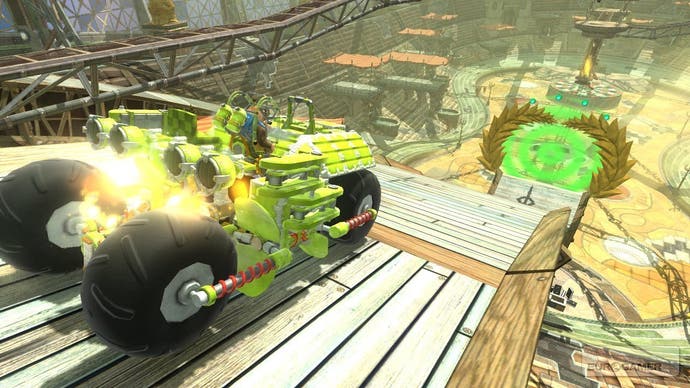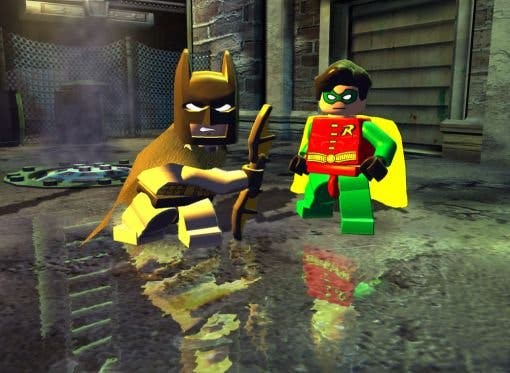Games That Define The Way Children Play
Get down with the kids to celebrate the launch of Megaton.co.uk.
Kung Fu Panda
- Activision, 2007
Not a game that you might expect to find on a traditional "best of" list, but one that warrants inclusion here not so much for what it does as what it represents. True, there's not much to the game other than melee combat and the occasional Quick-Time Event, but when most kid movie spin-offs are content to make as little effort as possible, Kung Fu Panda (developed by Vigilante 8 creator Luxoflux) goes out of its way to be an actual game rather than just a vaguely amusing advertisement for its source material.
Visually it's surprisingly lovely, one of the few movie adaptations to look like it was developed for the Xbox 360 instead of the PS2. The gameplay is shallow, but carefully balanced and robustly presented. Control is crisp and responsive, combat has a satisfying flow and weight, and it recreates the movie story while finding space to expand the narrative canvas in organic ways.
In an ideal world, these would be the basics of any game based on a kids movie. As it is, Kung Fu Panda stands out simply for acknowledging that kids are as deserving of polish and thoughtful design as anybody.
Banjo-Kazooie: Nuts & Bolts
- Microsoft, 2008

Rare is another developer that has a commendable history of treating younger players with respect, and nothing demonstrates this more than Banjo and Kazooie's third outing. Ditching the 3D platformer template in favour of something more unique, Nuts & Bolts is a fine advert for the benefits of crafting a compelling gameworld and then giving the player the freedom to experience that world in whatever manner they see fit.
Most of all, Nuts & Bolts works because it understands that sometimes scribbling in the margins can be as much fun as colouring in-between the lines. Indeed, it's likely that most kids won't remember most of the challenges the game throws at them, but will instead fondly recall the time they built a giant flying tank that was also a submarine and flew it so high that they bumped off the metal sky of Nutty Acres before jumping out and freefalling all the way back down to the ocean.
Offering boundless customisation options, the Nuts & Bolts garage is one of the most sophisticated user-content tools of this generation, and the fact that primary school children can quickly master its intricacies and create working machines is rather special.
That they'll be learning the broad strokes of key engineering concepts as they go is just the icing on the cake.
LEGO Batman
- Warner Bros. Interactive Entertainment, 2008

No list of influential kids games would be complete without the omnipresent LEGO series, which continues to showcase just how inspiring and exciting a well-designed game can be for an audience still learning how to play videogames.
For the sake of argument I've plumped for LEGO Batman as the representative of Traveller's Tales' ever-expanding franchise, purely on the basis that it offers the most gameplay, the most refined design and the most inventive use of the source material.
As with LEGO Star Wars and LEGO Indiana Jones (and, soon, LEGO Harry Potter) the aim of the game can be summed up in one sentence: earn LEGO studs to unlock more LEGO stuff. Where these games distinguish themselves is the devilishly clever way this is done.
Any child can grasp the idea of guiding Lego characters around the environment, smashing stuff. By doing this they earn studs and learn a little more about the interactivity of the gameworld. Next time around, they might pull a few levers, discover a couple of secrets.
Before you know it, they're tackling puzzles, working out which characters to unlock next to obtain key abilities, and totting up the stud totals they'll need to achieve their self-imposed goals. It's a crash course in how to play videogames, basically, and one that draws on broad humour and tightly focused design to benefit the player, regardless of their skill level.
Cynics may sneer that the games are all the same, but you try telling that to the legions of under-10s who anticipate each new LEGO release as fervently as the hardcore crave the next bloody shooter.
Parents! Check out our new kids site Megaton.co.uk and let us know what you think of it through our contact form or blog comments.








